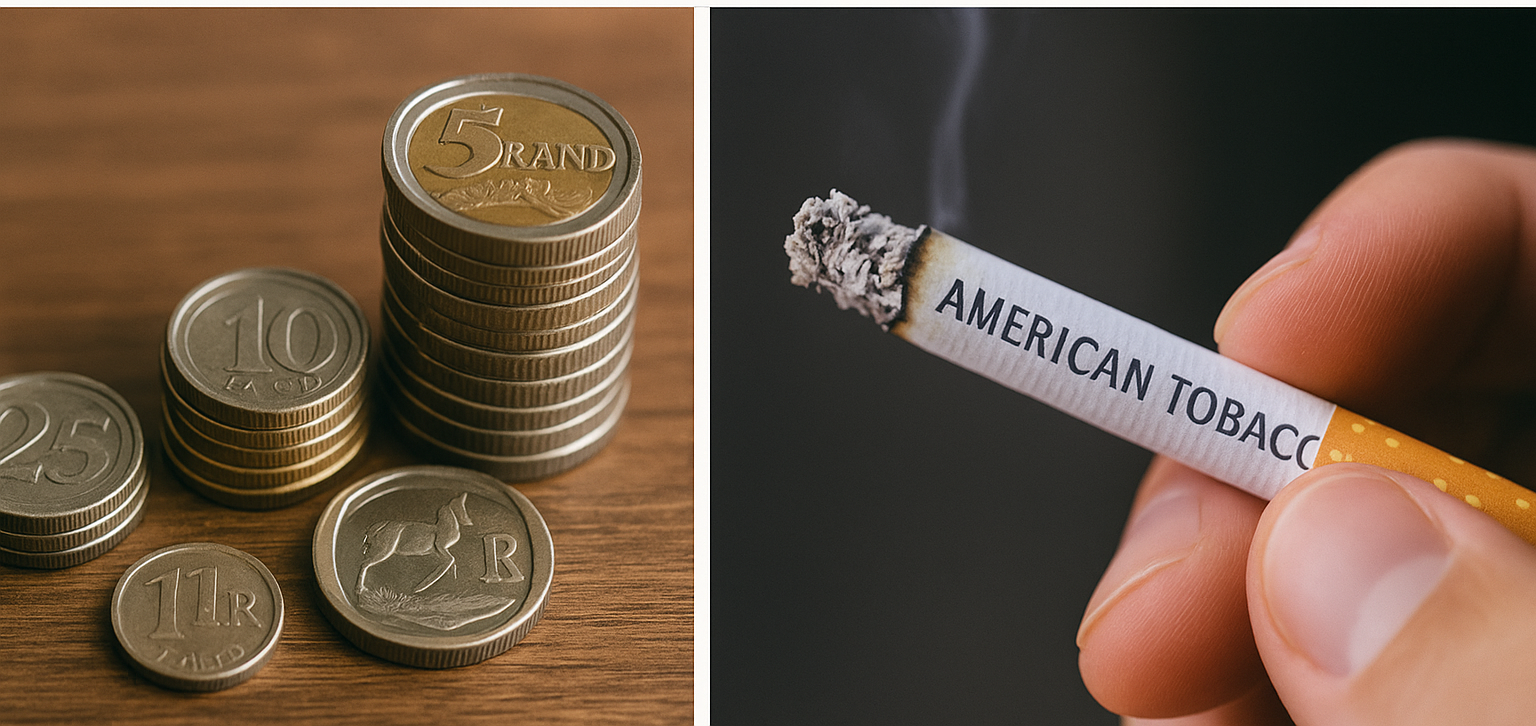This share price isn’t up in smoke
British American Tobacco has reaffirmed its earnings guidance at its AGM – well, before adjusting for currency movements, at least. This is despite all the recent chaos around tariffs and worries about economic growth, so that’s a helpful reminder of how defensive it is when people are addicted to your products.
For many investors, British American Tobacco just isn’t an option because of ethical reasons. Of course, a significant commitment to trying to improve the ESG score of the group and widen its appeal to institutional investors is what drives all the rhetoric around a “Smokeless World” and all the other clever terms that ESG consultants have come up with. If you visit the company website, the colours will make you feel like they sell fluffy unicorns and spend their weekends caring for orphaned bunnies. This isn’t by accident.
For those who are happy to play in this space, the share price is up a whopping 44% over the past 12 months. It’s not just rand weakness either; the price in London is up 38% over that period. The market is well aware that growth is hard to come by for the company, but is equally aware that British American Tobacco is a cash cow of note. The expected aggregate free cash flow from 2024 to 2030 is £50-billion (R1.2-trillion). For context, the market cap is almost £70 billion (R1.7-trillion), so you can see that the market isn’t terribly interested in the long-term growth story – instead, the focus is firmly on the near-term yield.
The guidance that was reaffirmed at the AGM certainly sends a message around lack of growth. Management expects constant currency revenue growth of just 1% for the 2025 financial year. Owing to operating leverage in the business (i.e. the extent of fixed costs and cost-saving initiatives), they believe that this will achieve growth in adjusted profit from operations of between 1.5% and 2.5%, taking into account a 1.5% currency headwind. It’s interesting that they mix their drinks here, with constant currency revenue guidance versus profit guidance that already considers a currency move. Alas, the latest expectation is that currency movements will be worse than initially believed, which suggests that adjusted profit from operations could achieve very little growth (net of currency movements) this year.
Still, the market wants safe havens at the moment, particularly ones that pay a dependable dividend. These are the right conditions for British American Tobacco to do well, which is why many institutional investors are so thrilled that they also get to meet their ESG requirements along the way. If ever you needed final proof that ESG was hijacked by the financial industry and turned into little more than a tool used for structuring, this tobacco company has a Triple A rating for its disclosures. Who cares what you do? Just tell us how you do it.
Why the obsession with dividends at Remgro?
As you saw above, there are very good reasons for British American Tobacco to be obsessed with dividends. It doesn’t have spectacular growth options and also shouldn’t be allocating capital into risky and unrelated ventures, so investors are keen to see fat cash dividends and any excess capital going into share buybacks.
Over at Remgro, we find a similar obsession with dividends. The problem is that it doesn’t really make sense. You see, the share is trading at a steep discount to the intrinsic net asset value (INAV) per share, which is management’s view of what the group is worth. As custodians and allocators of capital, Remgro’s management constantly choose from a variety of opportunities in unrelated industries. The opportunity that they should actually be choosing is to get the hammer down on share buybacks.
You see, this is a textbook example of where share buybacks are valuable, as management can send a message to the market that they genuinely believe in the INAV per share. In fact, they can show that they believe in it so much that the best use of capital is to buy back shares at a discount to INAV, thereby benefiting all the shareholders who choose to stay behind and hopefully watch the discount close over time.
Instead, Remgro’s belief is that not prioritising the dividend would be a “betrayal of the fundamental tenet of the Remgro thesis” – this sounds like something you’ll hear from religious leaders, not capital allocation professionals. If there are investors on the register who own Remgro for the dividend, then a decision to put share buybacks above dividends may indeed chase some of them away. But guess what? They would sell their shares to investors who are more interested in seeing the discount to INAV close, so Remgro is no worse off for this. In fact, those investors dumping their shares would create a terrific opportunity for Remgro to buy them back at an even bigger discount to INAV (temporarily at least), thereby churning the register and creating value for those left behind.
Alas, all we have is Remgro bleating about the discount to INAV and how it just refuses to close. The group cannot simply hope that this will change. Hope isn’t a strategy. The approach taken by African Rainbow Capital to its management fees and now buyout offer has already put an even darker cloud above the entire investment holding company sector. Remgro will need to take active steps to make the market believe in its INAV, or the discount simply won’t close. The most logical step would be to prioritise share buybacks over cash dividends.
Will we see it happen? I’m not holding my breath, especially based on the narrative put forward by the company at its recent capital markets day. DM





